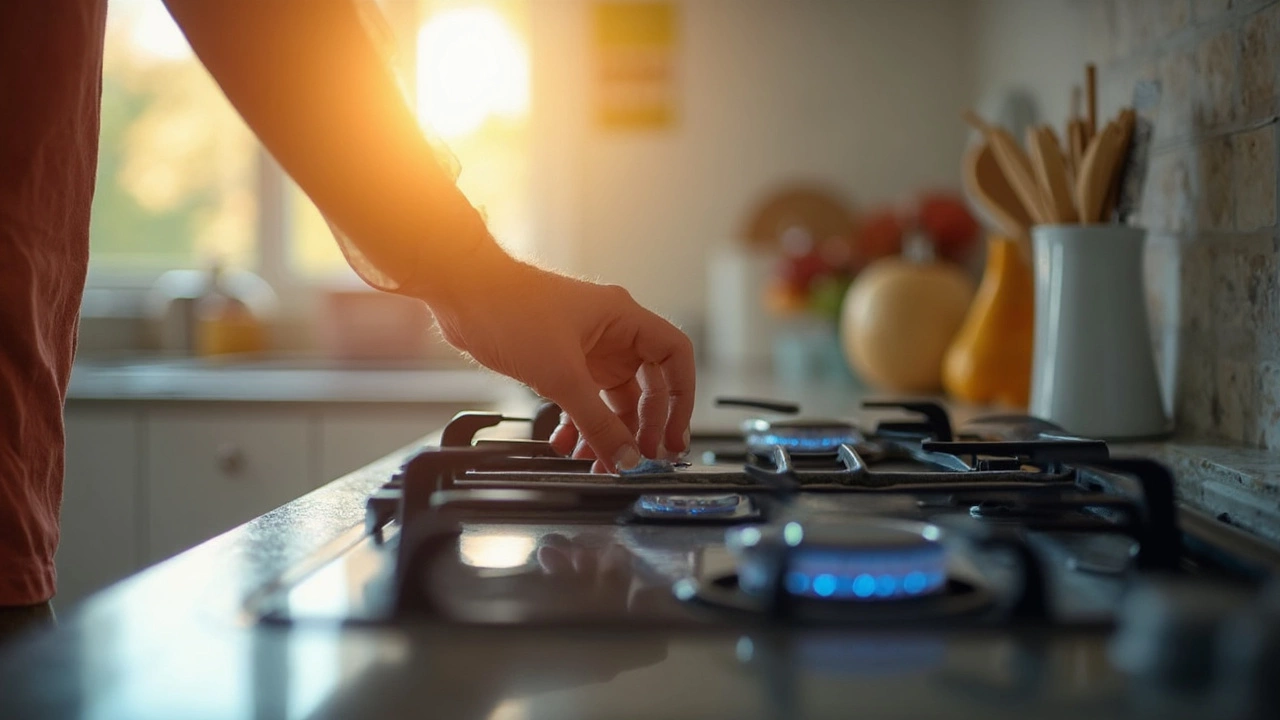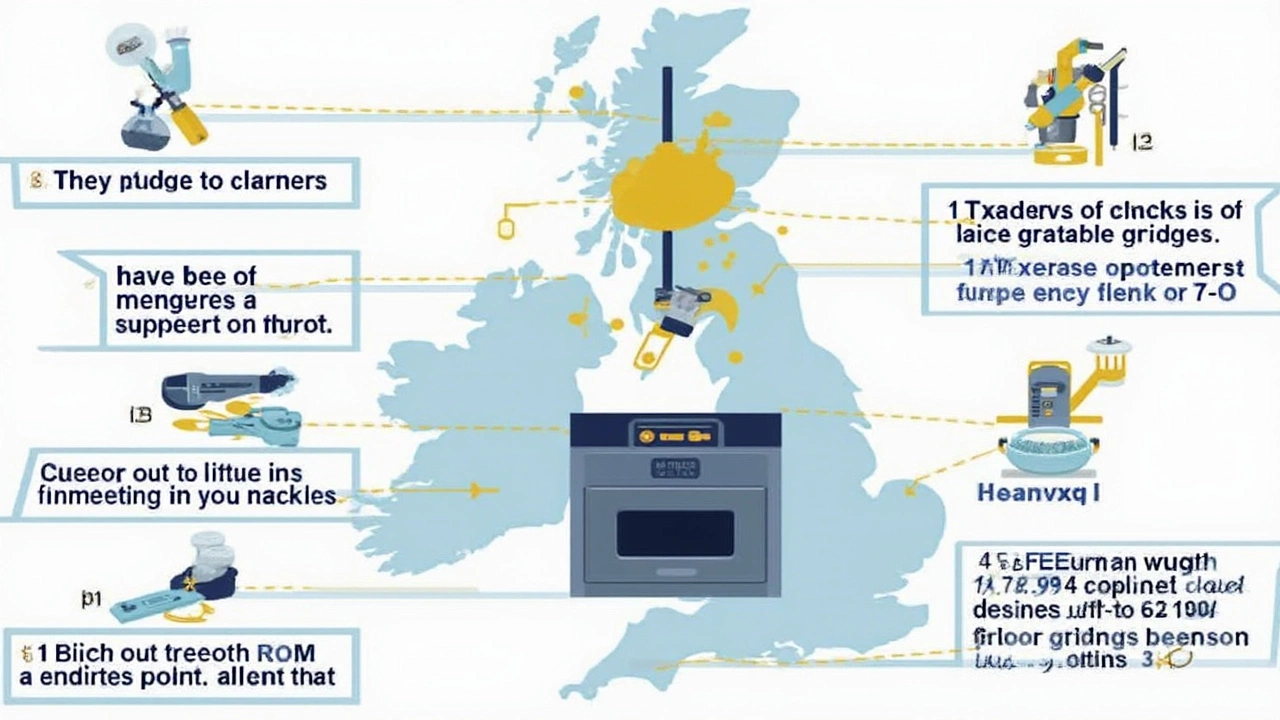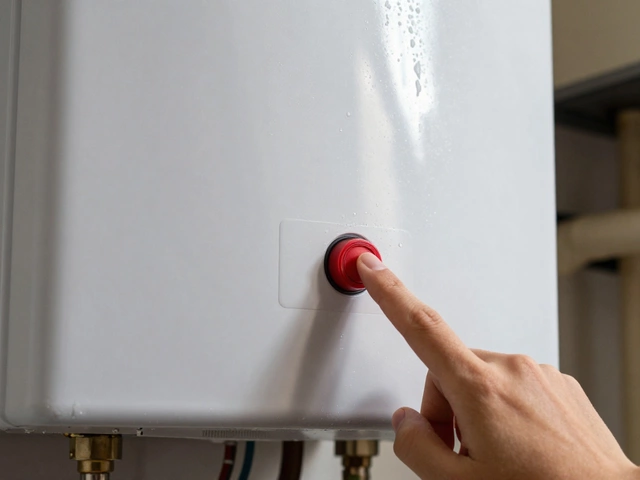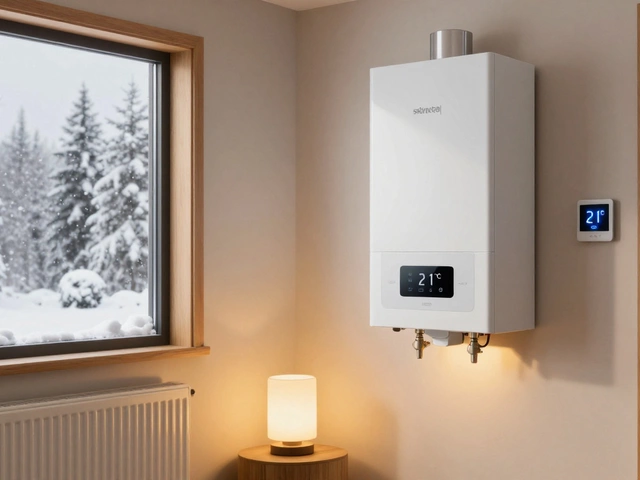Ever hear a loud bang in the kitchen and walk in to see chaos? It might sound like a scene from a slapstick comedy, but cookers can and do explode if we aren't careful. Let's talk about why cookers—those trusty stove-top companions—can sometimes turn into kitchen grenades.
First off, faulty installations or neglected maintenance is a major culprit. Install a cooker wrong, and it's like setting a ticking time bomb. We often take these appliances for granted, skipping through life without a thought to their upkeep. Until, of course, something goes boom.
Another thing to consider is over-pressurization. Believe it or not, a simple thing like letting pressure build up can turn your cooker into a hazard. Many folks ignore little warning signs like odd noises or inconsistent heating, but these are your cooker's SOS signals. Thankfully, understanding these factors helps you dodge the risk and keep your kitchen intact.
- Common Causes of Cooker Explosions
- The Science Behind Cooker Failures
- How to Prevent Your Cooker from Bursting
- Signs Your Cooker Needs Immediate Attention
- Simple Maintenance Tips for Cooker Safety
Common Causes of Cooker Explosions
It might come as a surprise, but cooker explosion causes are quite a mix of stuff that just doesn’t seem fair. Let’s jump into the nitty-gritty. Most times, it's usually something even you can fix, if you know what to look for.
First up on the list is poor installation. A cooker hooked up poorly can leak gas, leading to some pretty dangerous outcomes. So, if there’s one thing you should do, make sure a professional handles the initial setup.
One sneaky culprit is blocked jets or vents. If they're clogged, what you've got is uneven gas flows and pressure build-ups that might just blow up in your face, quite literally. Regular cleaning can be your best friend here. It's crazy how cleaning can save you from a major disaster.
Next, let's not forget about overheating. It sounds pretty simple, but overheated cookers can cause materials to warp and break down, making your oven a hotspot for explosions. Overheating often results from worn-out or broken safety components like thermostats.
Sometimes you’ll see cookers with damaged or old parts, especially seals, that have seen better days. These contribute more to the risk of a cooker going rogue than anything else. Doing a routine check can de-stress this.
Here's a handy list of what to watch out for:
- Ensure proper ventilation. This is crucial for gas cookers to prevent pressure build-up.
- Keep jets and burners clean. It helps maintain even gas flow.
- Inspect for faulty parts regularly. Change worn-out seals and components.
- Avoid overloading your cooker, which could cause overheating.
Seems simple enough, right? It’s like how your car needs regular oil changes. Same for your cooker—it demands some love and attention to run smoothly and safely. And hey, it’s likely to save you some serious repair money or worse, a kitchen renovation.
The Science Behind Cooker Failures
So, what exactly makes a cooker go kaboom? At the heart of many cooker explosion causes lies pressure, or more specifically, the misuse or abuse of it.
Cookers work on a basic principle of heat and pressure doing their thing to cook food faster. When you boil water, it turns into steam, and this steam builds up pressure. If everything's working right, the cooker regulates this pressure, letting out just enough to prevent problems. But if the release valve is blocked or defective, all that pressure has nowhere to go. That's when things get dicey.
Blocked burners can also play a sneaky role in cooker mishaps. If gas escaped without igniting properly, you've got a flammable cloud just waiting for a spark. You'd be surprised how many kitchen fireworks start just because folks ignored little things like cleaning or checking burners.
"An ounce of prevention is worth a pound of cure," says kitchen safety expert Tom Harris. "Simple maintenance can prevent most hazards."
Another scientific angle is metal fatigue. Over time, the materials that make up a cooker can weaken. Intense heat and pressure cycles do cause wear and tear on the inner parts. Think of it like bending a paperclip back and forth—eventually, it'll snap.
Statistically speaking, out of every 100 cooker failures, around 60% relate to poor maintenance by the user. Only a small margin comes down to manufacturing defects, so active engagement with your cooker's health is key.
Understanding the underlying mechanics of cooker failures makes it easier to spot issues before they become full-blown disasters. It's like how we care for a car—routine checks and balance can save you a world of trouble later.

How to Prevent Your Cooker from Bursting
Keeping your cooker from turning into an unplanned fireworks show doesn’t take a science degree. It’s about regular checks, the right habits, and knowing the signs of trouble. Here’s a run-down of what you can do to ensure your cooker stays in one piece.
Regular Maintenance: It might sound boring, but a once-a-year check-up can save you a lot of stress. Have a professional inspect the gas lines, check for leaks, and ensure everything’s in tip-top shape. It's like taking your car for a service—necessary, but worth it.
Use Proper Cooking Ware: Sounds simple, right? But using the wrong pot on your stove can block vents and cause pressure to build up. Make sure your pots and pans are the right size and never cover a pressure vent.
Don't Ignore Warning Signs: Funny noises or smells, uneven heating, or even a burner that just doesn't light up right—these are cries for help. Address these issues pronto instead of crossing your fingers hoping they’ll sort themselves out.
‘A stitch in time saves nine,’ says appliance expert, Greg Johnson. ‘Spotting trouble early can prevent costly disasters later.’
Follow Cooking Instructions: Follow recipes and appliance manuals closely. They’re not just suggestions; they tell you what’s safe for you and your cooker.
Proper Installation: Always get your cooker installed by a certified technician. Sure, your cousin Bob might fancy himself a DIY master, but when gas lines are involved, it's better to leave it to the pros.
| Action | Frequency |
|---|---|
| Professional Check-up | Once a year |
| Inspect for Leaks | Quarterly |
| Clean Vents | Monthly |
| Replace Old Parts | As needed |
Prevention takes a bit of effort and attention to detail, but the payoff is a safer, more reliable cooking experience. That’s definitely worth its weight in gold—or maybe just the price of your next meal, free from fear of an explosive surprise.
Signs Your Cooker Needs Immediate Attention
Alright, so if your cooker starts acting like it's got a mind of its own, it's probably waving a red flag at you. One surefire sign is when you notice any funny smells, like gas or burning. No brainer here—gas leaks are a major hazard. If it smells off, stop ignoring it and call a professional ASAP.
Another thing to watch for is weird noises. Sure, the occasional clunk or click might not be a big deal, but if your cooker sounds like a rock band is practicing in there, it's time to pay attention. These noises can mean something's loose or about to give out.
Then there's the issue of inconsistent heating. If parts of your dish end up scorched while other parts stay cold, that's a hint. Cooker repair tips suggest checking if burners or heating elements are working right.
- Burner Issues: Weak or flickering flames can point to blocked or damaged burners.
- Temperature Problems: If food isn't cooking evenly, your thermostat might be faulty.
- Electric Cookers: Watch for flickering lights or strange power surges, as they might indicate an electrical problem.
Any unexpected shut-offs or if the cooker takes forever to heat up could also be signs of some internal problem. Sometimes you just need to give your cooker a little maintenance love, while other times it's more about addressing small issues before they blow up—literally.
Regular maintenance checks by professionals can save you from those surprise breakdowns. And if you ever feel out of your depth, don't do the guesswork—get help from someone who knows what they're doing. Better safe than sorry, right?

Simple Maintenance Tips for Cooker Safety
Want to avoid the drama of a cooker explosion? It’s all about keeping up with simple maintenance. These tips will help ensure your cooker remains a reliable kitchen assistant rather than a fiery foe.
First things first, make sure you regularly check the cooker’s gas connections and hoses for signs of wear or damage. Over time, these components can become brittle or develop leaks, which are a big no-no for safety. If you notice anything questionable, don't wait—get it fixed or replaced by a professional. It’s cheaper than a new kitchen.
Keep the vents clear. Your cooker, just like you, needs to breathe. Blocked vents cause heat and pressure to build up, and you can guess the rest. Keep them free of obstructions and do a quick check every now and then.
Let's be honest, keeping things clean helps everything run smoother. Grease and grime aren’t just gross—they can clog parts and affect your cooker’s function. Give it a good wipe-down after use and a deeper clean every week or so.
- Regular Inspection: Schedule monthly check-ups to spot any changes early. A quick look can save you a major headache later.
- Professional Servicing: Even if you’re a DIY whiz, inviting a pro for annual service is smart. They'll catch what you might miss.
- Use the Right Tools: Simple things, like using correct pan sizes and heat settings, prevent undue stress on your cooker. Think of it as operating within its comfort zone.
With these straightforward maintenance tips, your cooker can serve you faithfully without any fireworks. So, keep these steps in mind and you’ll be good to go!


